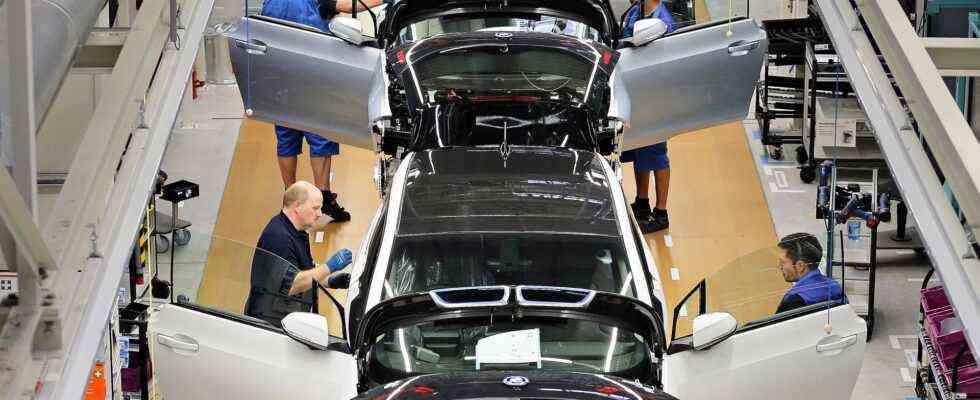Status: 08.07.2021 10:10 a.m.
German consumers prefer to buy German electric cars. This is shown by the KBA data on new registrations in the first half of 2021. A French brand only follows in fifth place.
For new registrations of pure electric vehicles and plug-in hybrids in the first half of the year, German electric cars occupy places one to four, as an evaluation of current figures from the Federal Motor Transport Authority (KBA) shows.
Volkswagen is the undisputed number one with 59,127 new electric registrations in the first half of the year. This corresponds to a market share of almost 19 percent and is thus slightly less than the share of Wolfsburg in the overall market.
It is followed by Mercedes-Benz with 33,918 and BMW with 28,663 vehicles, followed by Audi with 24,569. Their shares in the electrified market are each slightly higher than in the overall market. Unlike Volkswagen, in which pure electric vehicles dominate, so-called plug-in hybrids dominate the three competitions. Fifth place is occupied by a French supplier, Renault.
If you only look at the purely battery-powered electric cars without an additional combustion engine, VW is ahead of Tesla with 35,923, Tesla with 13,768 and Smart with 12,252. When it comes to plug-in hybrids, Mercedes-Benz leads with 29,882, ahead of VW with 23,204 and BMW with 22,011. In total, a good 312,000 pure electric cars and plug-in hybrids were newly registered in Germany in the first half of the year. That was every fourth to fifth car.
Combustion engines are losing market share
The current growth figures for June are strong: In the case of purely electric cars, the number of new registrations rose by 311 percent compared to the same month last year. The share was 12.2 percent. In the case of hybrid cars, the increase was 153.1 percent.
According to the KBA, new registrations with fossil fuels fell further in June compared to the same month last year. After a decrease of 4.6 percent, the share of petrol engines was 39.5 percent. In the case of diesel cars, the share was 19.9 percent after a decline of 18.8 percent.
What will happen to the combustion engine?
The German auto industry is meanwhile resisting a legal ban on internal combustion engines in Europe in the coming decade. That would stifle innovations, deprive consumers of their freedom of choice and endanger jobs in the automotive industry, warned the head of the VDA automotive association, Hildegard Müller.
Background: The EU has announced legislative proposals on climate protection for July 14th. According to a report in the “Frankfurter Allgemeine Zeitung”, EU Environment Commissioner Frans Timmermanns is campaigning for stricter CO2 limits for new cars: by 2030 they should drop by 60 percent from the current average of 95 grams / kilometer and by 2035 by 100 percent.
That would mean the end of the internal combustion engine and would also mean the end of hybrid drives, which are important as a transition technology for the German premium car manufacturers Audi, BMW and Daimler.

